Nasopharyngeal Carcinoma - Traditional Chinese Medicine Treatment
Information provided/updated by:
Professor Wang Yongqin,
Clinical Professor of Chinese Medicine, School of Chinese Medicine, Hong Kong Baptist University
Introduction:
In this article, Professor Wang Yongqin introduces us to how traditional Chinese medicine treats nasopharyngeal carcinoma.
A. Overview (including organs, systems, and the use and differences of terms in traditional Chinese medicine and Western medicine)
B. Causes/Symptoms/Diagnosis
C. Treatment Methods
A. Overview (including organs, systems, and the use and differences of terms in traditional Chinese medicine and Western medicine)
Nasopharyngeal carcinoma is a malignant tumor that occurs in the nasopharynx and is one of the common malignant tumors in the head and neck. Its incidence rate is the highest in the department of otorhinolaryngology. Due to the hidden location of nasopharyngeal carcinoma, early symptoms are easily overlooked and can be easily confused with ear diseases and sinus nasal diseases. Therefore, most of them are already in the late stage when discovered, which affects the treatment effect and tumor prognosis.
Nasopharyngeal carcinoma has a clear regional nature, with Southeast Asia and the five southern provinces of China (Guangdong, Guangxi, Hunan, Fujian, Jiangxi) being high-incidence areas, especially Guangdong Province, which has the highest incidence rate, hence the name "Guangdong Cancer". The disease is more common in middle-aged people, with more men than women. Data shows that the male-to-female incidence ratio in Hong Kong is 2.9:1, and among men aged 20-44, nasopharyngeal carcinoma is the most common cancer. Theincidence of nasopharyngeal carcinoma also has a trend of becoming younger, which should be taken seriously.
B. Causes/Symptoms/Diagnosis
The early symptoms of nasopharyngeal carcinoma mainly manifest as nasal congestion, bloody nasal discharge, especially blood-streaked sputum inhaled; a feeling of stuffiness in the ear, tinnitus, and hearing loss. As the disease progresses, there is gradually unilateral persistent headache, cervical lymph node enlargement, hard and painless, with poor mobility. In the middle and late stages, the cancer invades the surrounding tissues of the cranial nerves and the orbit of the eye, resulting in symptoms such as facial numbness or pain, difficulty in swallowing, opening the mouth, severe headache, and visual impairment. In the late stage, the cancer metastasizes to distant places, the organs of the whole body fail, and death occurs due to cachexia or sudden massive bleeding.
Traditional Chinese medicine believes that the occurrence of nasopharyngeal carcinoma is mainly related to the innate inherited toxins, the indulgence in eating pickled and unripe food , and living in a damp environment, which leads to the dysfunction of organs such as the lung and spleen, and the internal generation of phlegm, static blood, dampness-heat, and fire toxins, which stagnate in the nasopharynx and accumulate into cancer.
The cause of nasopharyngeal carcinoma is not very clear in Western medicine, it is generally believed to be mainly related to family genetics, EB virus infection, regional environment, dietary habits, long-term consumption of salted fish, pickled food, etc.
C. Treatment Methods
The treatment of nasopharyngeal carcinoma in Western medicine mainly uses radiation, chemotherapy and surgical removal. Among them, radiation therapy is the first choice for tumors that have spread. It can be combined with chemotherapy. Surgical removal is only suitable for patients with nasopharyngeal carcinoma who have relapsed after radiotherapy and chemotherapy. Other treatments such as targeted and immunotherapy are not yet certain for the effectiveness of nasopharyngeal carcinoma and are less used.
The treatment of nasopharyngeal carcinoma in traditional Chinese medicine is mainly based on its pathogenesis, clinical symptoms, the nature and color of the tumor, and whether it has received radiotherapy and chemotherapy for syndrome differentiation and treatment. Generally speaking, for early nasopharyngeal carcinoma that has not undergone radiotherapy and chemotherapy, the treatment plan of traditional Chinese medicine is mainly to attack the poison and resist cancer, in order to disperse the tumor, remove the cancer poison, and prevent spread; for late nasopharyngeal carcinoma or those who have undergone radiotherapy and chemotherapy, the treatment plan is to support the positive and nourish the positive, in order to improve the quality of life, or reduce and repair the sequelae after radiotherapy and chemotherapy, and prevent tumor recurrence.
Generally speaking, in the early stage of nasopharyngeal carcinoma, those who have not undergone radiotherapy and chemotherapy, the syndrome differentiation mostly belongs to lung meridian phlegm heat, liver and gallbladder dampness-heat fire toxin, qi and blood stasis, etc. Among them, those with lung meridian phlegm heat should be treated with clearing the lung and resolving phlegm, dispersing the knot and reducing swelling. The prescription can be adjusted with Qi Clearing and Phlegm Resolving Pills and Detoxifying Decoction; those with liver and gallbladder dampness-heat and fire toxin accumulation should be treated with clearing and purging the liver and gallbladder, draining dampness and detoxifying. The prescription can be adjusted with Longdan Xiegan Decoction and Chaihu Qinggan Decoction; those with qi and blood stasis should be treated with activating blood and removing stasis, softening hardness and dissipating binds. The prescription can be adjusted with Xuefu Zhuyu Decoction and Biejia Jian Pills.
In the late stage of nasopharyngeal carcinoma, the cancer poison is rampant, the body cannot resist the evil, the body is weak, and there is a dual deficiency of qi and blood. The treatment should be to tonify qi and replenish blood, reinforce the healthy qi and eliminate the pathogenic factors. It can be adjusted with Ren Sheng Yang Ying Decoction, Sheng Mai Drink, etc.
Nasopharyngeal carcinoma has been treated with radiotherapy, and those with dry mouth and throat often have yin deficiency and fluid deficiency, and the residual poison is not clear. The treatment should be to nourish yin and engender fluid, lightly clear the residual poison. It can be adjusted with Shashen Maidong Decoction, Zhuye Shigao Decoction, etc.; nasopharyngeal carcinoma has been treated with radiotherapy and chemotherapy, and those with dry mouth and poor appetite often have dual deficiency of qi and yin, and weakness of the spleen and stomach. The treatment should be to tonify qi and nourish yin, fortify the spleen and benefit the stomach. The prescription can be adjusted with Shashen Maidong Decoction, Xiangsha Yangwei Pills, etc. for treatment.
The prognosis of nasopharyngeal carcinoma depends on the timing of diagnosis and treatment. Early detection and treatment are key to improving the 5-year survival rate and even cure. Therefore, for those with a family history, they should regularly undergo nasopharyngeal and serological examinations after adulthood.




